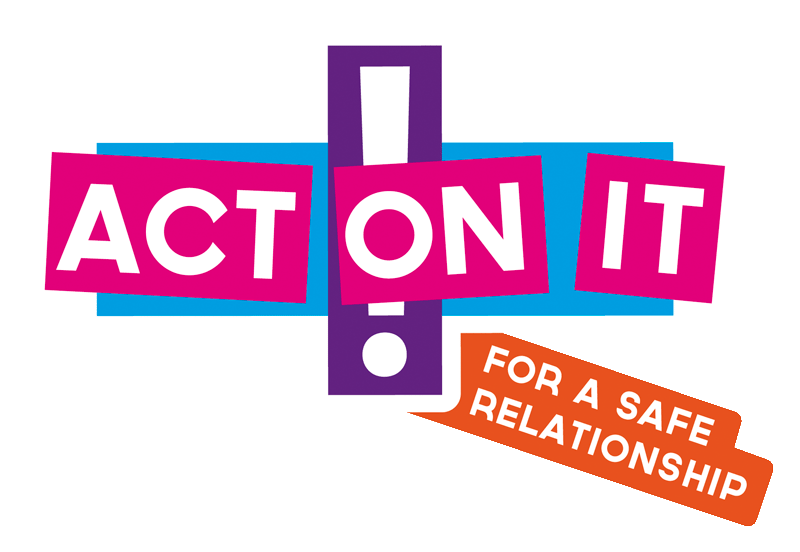Improve your emotional wellbeing – give
Five ways to mental wellbeing
We follow the Government’s five ways to mental wellbeing* in our work with teenagers & young people affected by domestic abuse.
At Act on it Now, we follow the Government’s five ways to mental wellbeing* in our relationships work with teenagers & young people.
Give
The fifth and final area of wellbeing is give. And there are a few different ways we can ‘give’ without buying gifts or spending money. Keep reading to find out more…
Give to others
Acts of giving and kindness can help improve our mental wellbeing. So giving to others doesn’t have to involve giving an actual gift or spending money. It can be something small – like saying thank you to a friend. Or something bigger – like volunteering in your community.
Giving to others can make you feel good. It can enhance your sense of self-worth. It can help you connect – or reconnect – with other people.
Giving to others can make you feel good. It can enhance your sense of self-worth.
You can give to others by giving the people you love and care about your time. Be present in their lives. Give them comfort during times of sadness. Support them during tough times. And share their joy during their happiest moments.
This doesn’t mean giving more to people than they give back. It doesn’t mean always being there to listen to people’s troubles and being dropped when they’ve finished offloading onto you. It doesn’t mean being a doormat.
Being generous with your time to people who deserve and appreciate your generosity can help to improve your mental wellbeing and create a strong support network, which might need repairing if you’ve experienced a toxic or unhealthy relationship.
Give a compliment
Giving a compliment isn’t just about telling someone they look nice or that you like their hair cut or their new trainers. Compliments can go beyond what someone looks like or what they’re wearing. And the great thing about giving a compliment is that it works both ways – you make someone else feel good and the act itself makes you feel good.
Giving compliments can get addictive. The more often you give them, the more you want to dish them out.
Got a friend whose optimism you’ve always admired? Tell them. Got a relative who always knows the right thing to say when you have a problem? Tell them. And thank them. Got a classmate who seems to grasp new topics easily? Tell them how fabulous they are and how much you appreciate it when they help you understand new subjects.
Giving compliments gets addictive. The more you do it, the more you want to do it. Many of us think of compliments every day, but sometimes we hold back on actually saying them out loud. But the more you do it, the more comfortable you’ll get about giving compliments. Why not try it today?
Give yourself time
If you’ve experienced unhealthy or toxic relationships, this a really important message. Give yourself time to work on your recovery journey and heal from your experiences.
Sit down with a brew and reflect. Have a long shower or a soak in the bath. Go for a mindful walk – where your phone stays in your pocket and you take notice of your senses – what can you see, hear, smell, feel…?
We’ve supported thousands of teens & young people over the years and many of them take choose creativity as a coping mechanism – things like art, poetry, journaling or creative writing.
Creativity is completely unique to you. There are no right or wrongs. No-one else needs to see the results.
What’s great about creativity is that it’s completely unique to you. There are no right or wrongs. No-one else needs to see the results. You don’t even have to tell anyone about it.
It doesn’t matter if you’ve never picked up a paintbrush before. Or if you’ve never read a poem – let alone written one. Pick up that paint brush. Dust off that notebook. Just make a start.
Give yourself time to process your feelings and see where your creativity takes you. Remember to make time for yourself and really treasure that time spent on you and your own personal healing process. What’s stopping you?
If you’ve experienced toxic or unhealthy relationships – with a partner, parent or someone else – and you’re not sure where to start with moving on, contact us today and we’ll help you move forward towards a brighter, happier future.
The five areas of wellbeing are:
Connect: Strengthening relationships with others – and feeling close to and valued by others, including at work – is critical to boosting wellbeing.
Keep learning: Being curious and seeking out new experiences at work – and in life more generally – positively stimulates the brain.
Be active: Being physically active – including at work – improves physical health and can improve mood and wellbeing and decrease stress, depression and anxiety.
Take notice: Paying more attention to the present moment – to thoughts and feelings and to the world around us – boosts our wellbeing.
Give: Carrying out acts of kindness – whether small or large – can increase happiness, life satisfaction and general sense of wellbeing.





